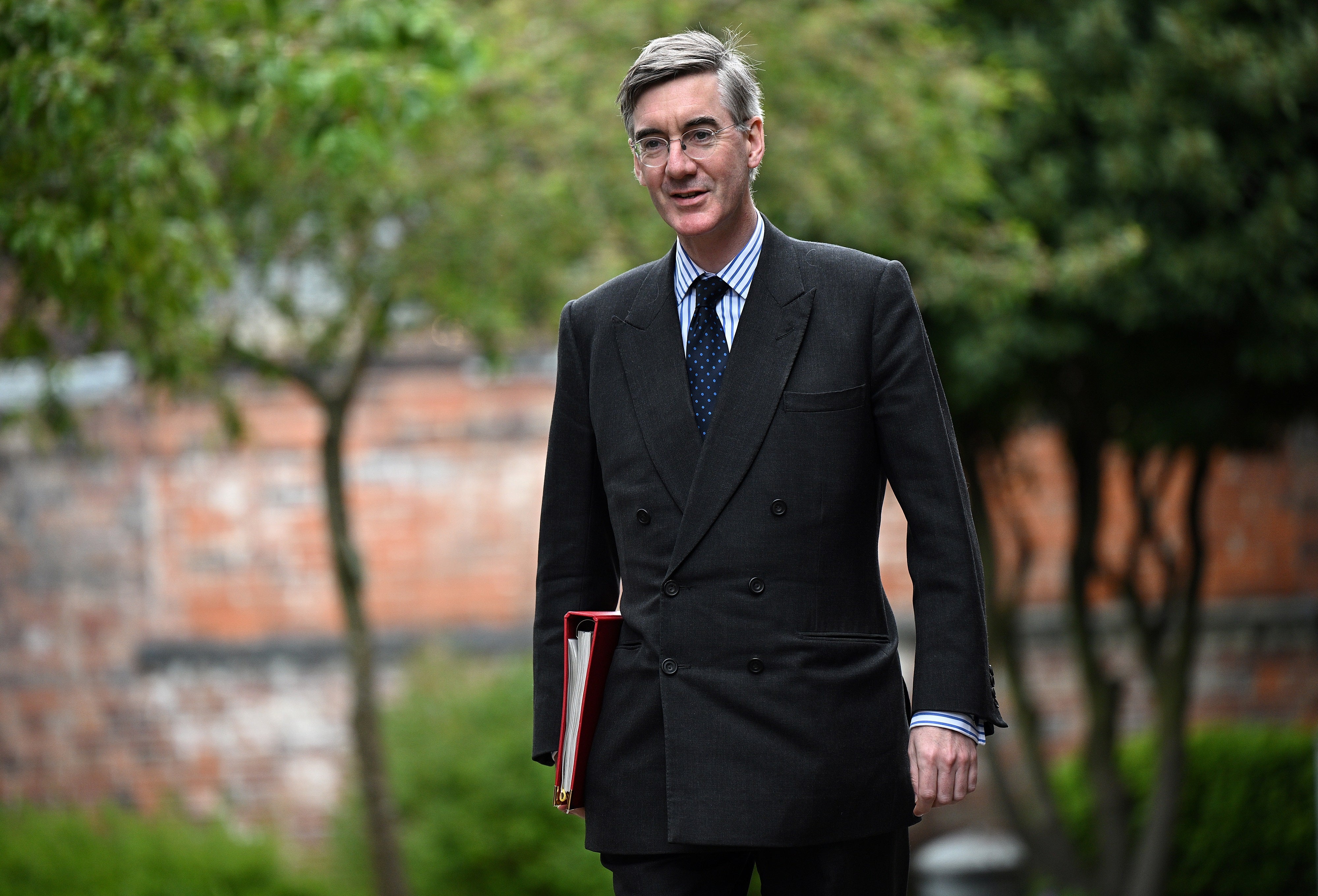Jacob Rees-Mogg’s suggested bonfire of EU rules is nothing but more Brexit propaganda
The ideas aren’t politically that attractive – and they are not necessarily the Brexit that people voted for, writes Sean O’Grady


Chairman Mao once declared “let a hundred flowers bloom”, a public appeal for intellectuals to come forward with ideas to achieve a more perfect revolution. I can't help thinking of that quote now Jacob Rees-Mogg has asked for suggestions for how to make Brexit even better than we know it is. It was a slightly strange request, given how central it is to government policy, and how much creativity about Brexit has poured forth in the 2016 referendum and after – not least the one about the NHS daubed on the side of a bus.
Still, Rees-Mogg received more than 2,000, of which a mere nine were considered worthy of further exploration by the minister for Brexit opportunities. They are as follows:
1. Encourage fracking, shortcut rules on planning consultation via emergency act
2. Abolish the EU regulations that restrict vacuum cleaner power to 1,400 watts
3. Remove precautionary principle restrictions (for instance) on early use of experimental treatments for seriously ill patients and genetically modified (GM) crops
4. Abolish rules around the size of vans that need an operator’s licence
5. Abolish EU limits on electrical power levels of electrically assisted pedal cycles
6. Allow certain medical professionals, such as pharmacists and paramedics, to qualify in three years
7. Remove requirements for agency workers to have all the attributes of a permanent employee
8. Simplify the calculation of holiday pay (eg 12.07 per cent of pay) to make it easier for businesses to operate
9. Reduce requirements for businesses to conduct fixed wire-testing application testing
There are at least four main problems with this. First, aside from any political or legal complications, there are the inherent flaws in some of the proposals – they are bad ideas. The thing about deregulation, European or otherwise, is that you can, sooner or later, discover that various rules were put there for a reason in the first place, even if it may have been half-forgotten. The present proposals to relax the regime on fracking, experimental drugs, and electrical safety feel a little like accidents waiting to happen. An electric bike with unlimited power would be a particular dangerous piece of machinery to allow on the road, and still less the pavement.
Second, where British standards diverge from existing EU ones then it would make life more difficult for exporters. Take the humble British biscuit. If genetically modified wheat were – if Mogg's nine picks above were to become reality – to be put into a British baked product, then the EU will not allow it into the European single market. Differing regulations could mean that British manufacturers would either have to make a product for the UK market, and another for the EU market. Troublesome and costly. And how many global vacuum machine makers will be bothered to produce uniquely souped-up sucking power for the relatively modest British market? Are UK carpets especially mucky?
Third, the idea, fine in principle, of deregulation is to make British business more competitive, and generally to reduce its cost base. The proposals on agency workers, for example, would reduce their cost to employers. However that, and similar ideas, risk violating the agreement in the Brexit treaty to maintain a “level playing field” and not reduce standards in areas such as workers’ rights, the environment and animal welfare. “Non-regression provisions” in the EU-UK Trade and Cooperation Agreemen were designed to ensure that protections are not reduced below the levels at the end of the transition period if that would affect trade or investment. UK deregulation and divergence is obviously subject to that international obligation.
Last, the ideas aren’t politically that attractive – they are not necessarily the Brexit that people voted for. Each Moggian initiative is electoral poison in some way: fracking, understandably enough, is unpopular in parts of Lancashire; tearing up planning rules is especially disliked in the south of England; GM food is viewed with widespread caution by British consumers; potentially undertrained paramedics don’t sound that comforting a prospect for older and frailer people who might be most in need of skilled first responders.
The upshot of all this seems to be that the uniquely tyrannical nature of EU regulation was largely a myth created by people with an axe to grind against Brussels. The paucity of the deregulatory agenda suggests that European rules, often influenced by British expertise, were more sensible and practical than people were led to believe. There was never, in other words, any rule by the EU to make bananas straight, and thus no need to abolish any such thing. As Boris Johnson knew and knows all too well.






Join our commenting forum
Join thought-provoking conversations, follow other Independent readers and see their replies
Comments